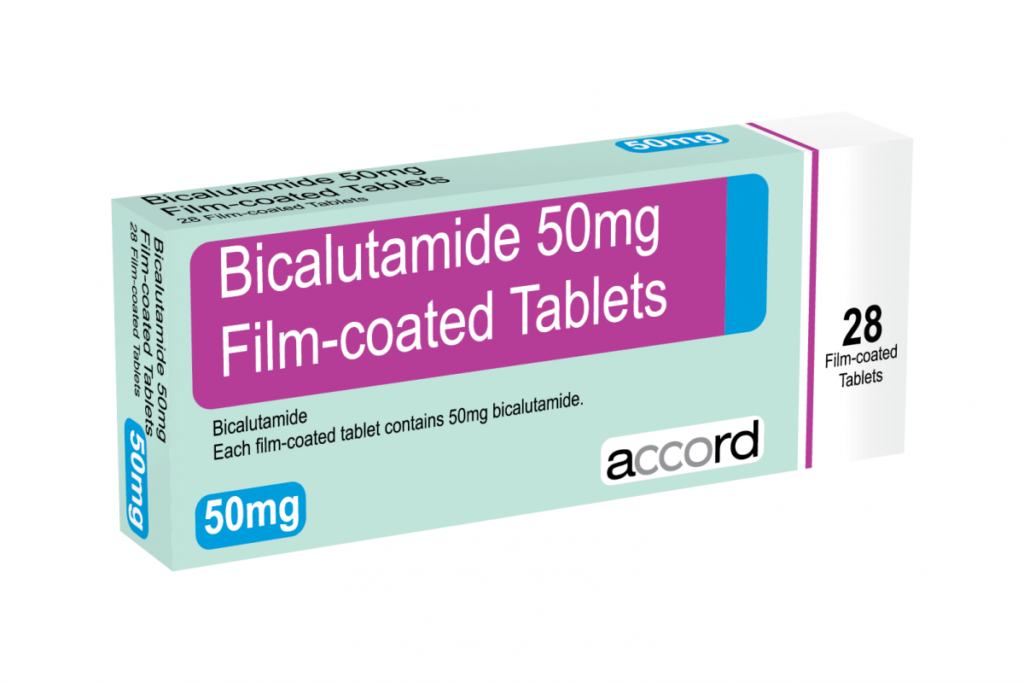
Tuesday and I wake up to find my partner having gone out and my eldest daughter having gone to work to collect some IT. As I get up there is a phone call from a friend who is catching up after some time away. We chat for a while and then we get on with our days. I make myself a bacon bagel and a coffee and settle down to review my e-mails. In the process of the review I try logging on to the “work” sector of my phone and to my amazement it actually works. I’ve been struggling for months to get to work to no avail, but all of a sudden it works. Having achieved this I head for the Shed adn spend the next hour or so writing letters. I am keeping one eye on the clock as I am expecting a call from the oncologist. I have a quick trip to the post box and then settle down on the sofa to wait for the call. Time rolls by the appointment time so I continue to wait. Eventually “He who made a pact with the devil” rings. We talk for a while, especially about the way my PSA is rising and the accelerating rate at which it is rising. He suggests a two month review with scans in January. I ask about the previous conversation that included new medication. We have a conversation about the possibility of starting the new medication now so that it can be part of the review in February. He says there are no right answers in this. I decide to go for it. My reason for going for it is that it gives me a sense of control over an area that I had thought I had no control over. I had accepted that I can control my life style, fitness, food, exercise but that I cannot control my cell biochemistry and it is that that determines my PSA . In turn this indicates the progress of my cancer. Therefore to be able to make a decision that affects my cell biochemistry and to make it happen quickly seems to me to be an opportunity not to miss. There are of course risks, there always are but this way it will be possible to tell if the change is affecting the rate of PSA rise sooner rather than later, in fact at least two months earlier and probably longer. It is a gamble.
We have a further discussion about the mechanics of the decision and how it will work. The proposed medication is Bicalutamide, a tablet taken once a day. The decision is made and I agree to pick up the prescription from the hospital in due course and then the drug will be managed by my GP. The nurse will call me later when the prescription is ready. I make a final check, apparently I am doing all I can in my lifestyle that can contribute to my survival.

The call ends and I sit for a few moments and google the Macmillan site to see what they say about Bicalutamide. This is what it said:
How bicalutamide works
Hormones are chemicals that our bodies make. Hormones act as messengers and help control how cells and organs work. Hormonal therapies are drugs that change the way hormones are made or how they work in the body.
Most prostate cancers need the hormone testosterone to grow. Almost all testosterone in men is made by the testicles. Bicalutamide blocks testosterone from reaching the cancer cells.
Bicalutamide may be given:
- on its own or with other hormonal therapies
- for a few weeks when taking hormonal drugs called LHRH agonists to prevent any symptoms getting worse because of a temporary rise in testosterone (called tumour flare)
- with other treatments such as surgery (radical prostatectomy) or radiotherapy.
About side effects
We explain the most common side effects of this treatment here. We also include some less common side effects.
You may get some of the side effects we mention, but you are unlikely to get all of them. If you are also having treatment with other cancer drugs, you may have some side effects that we have not listed here.
You will see a doctor, nurse or pharmacist regularly while you are having this treatment. Always tell them about any side effects you have. They can give you drugs to help control most side effects. They can also offer advice to help you cope.
Most side effects can be managed. But sometimes side effects are harder to control. It is important not to stop taking hormonal therapy without telling your doctor. If side effects cannot be managed, your doctor may suggest you take a different type of hormonal therapy.
Serious and life-threatening side effects
Some cancer treatments can cause severe side effects. Rarely, these may be life-threatening. Your cancer doctor or nurse can explain the risk of these side effects to you.
Contact the hospital
Your nurse will give you telephone numbers for the hospital. If you feel unwell or need advice, you can call them at any time of the day or night. Save these numbers in your phone or keep them somewhere safe.
More information
We cannot list every side effect for this treatment. There are some rare side effects that are not listed. You can visit the electronic Medicines Compendium (eMC) for more detailed information.
Common side effects
Hot flushes and sweats
Hot flushes are a common side effect of this treatment. During a flush, your neck and face may feel warm and look red. Flushes may last from a few seconds up to 10 minutes. You may have sweats and then feel cold and clammy. Some people feel anxious or irritable during a hot flush.
There are things you can do to try to reduce flushes:
- Wear clothes made from natural fabrics, such as cotton.
- Wear layers of clothes that you can remove if you feel hot.
- Use cotton bed sheets and have layers of bedding that you can remove if you feel hot.
- Keep room temperatures cool or use a fan.
- Have cold drinks rather than hot ones. Try to avoid drinks with caffeine in them.
You may have fewer hot flushes and sweats as your body adjusts to hormonal treatment. Or your doctor can prescribe drugs to help. Flushes and sweats usually stop a few months after treatment finishes, but some people continue to have them.
You can read more about coping with hot flushes.
Breast swelling or tenderness
This treatment may cause swelling and tenderness of your breast tissue. This is called gynaecomastia. Your doctor can give you advice on preventing and treating this.
Sexual effects
Most men lose their sex drive and have erection problems during hormonal therapy. Things often return to normal after you stop taking the drug. But some men continue to have problems after treatment is over. Your doctor can prescribe treatments to help with erection problems. But these treatments will not increase your sex drive.
Tiredness
Feeling tired is a common side effect. Try to pace yourself and plan your day so you have time to rest. Gentle exercise, like short walks, can give you more energy. If you feel sleepy, do not drive or operate machinery.
Anaemia (low number of red blood cells)
This treatment can reduce the number of red blood cells in your blood. Red blood cells carry oxygen around the body. If the number of red blood cells is low, this is called anaemia. You may have symptoms such as:
- pale skin
- lack of energy
- feeling breathless
- feeling dizzy and light-headed.
Tell your doctor or nurse if you have these symptoms.
If you are very anaemic, you may need a drip to give you extra red blood cells. This is called a blood transfusion.
Skin changes
This treatment may affect your skin. It may cause a rash, which might be itchy. Your doctor or nurse can tell you what to expect. If your skin feels dry, try using an unperfumed moisturising cream every day.
Always tell your doctor or nurse about any changes to your skin. They can give you advice and may prescribe creams or medicines to help. Skin changes usually improve when treatment finishes.
Some people are more sensitive to the sun during treatment and need to take extra precautions to protect their skin.
Weight gain and loss of muscle strength
You may put on weight when you are having this treatment. This will often be around your waist. You may also lose some muscle strength. Eating healthily and being active can help you keep to a healthy weight. Your doctor, nurse or a dietitian can give you more advice.
Feeling sick
You may feel sick when you are having this treatment. This is usually mild. If you feel sick, your doctor can give you tablets to help. It may also help to take your bicalutamide tablets with food.
Loss of appetite
This treatment can affect your appetite. Do not worry if you do not eat much for a day or two. But if your appetite does not come back after a few days, tell your nurse or dietitian. They will give you advice. They may give you food or drink supplements.
Constipation
This treatment can cause constipation. Constipation means that you are not able to pass stools (poo) as often as you normally do. It can become difficult or painful. Here are some tips that may help:
- Drink at least 2 litres (3½ pints) of fluids each day.
- Eat high-fibre foods, such as fruit, vegetables and wholemeal bread.
- Do regular gentle exercise, like going for short walks.
If you have constipation, contact the hospital for advice. Your doctor can give you drugs called laxatives to help.
Tummy pain
You may get pain or discomfort in your tummy area (abdomen). You may also feel bloated or have indigestion or wind. Peppermint capsules, mint tea or charcoal tablets may help with indigestion or wind. Tell your doctor if your symptoms do not improve or if they get worse. They can give you drugs to help.
Dizziness or drowsiness
Tell your doctor or nurse if you have either of these symptoms. It’s important not to drive or operate machinery if you feel this way.
Hair changes
Your hair may become thinner when you are taking this treatment. This is usually mild. Ask your nurse for advice if you are worried about this.
Some men notice their hair gets thicker during treatment.
Mood changes
You may have some mood changes during this treatment. You may feel low or depressed. Let your doctor or nurse know if you notice any changes.
Blood in your urine
You may have blood in your urine while taking bicalutamide. Tell your doctor or nurse if you notice this.
Effects on the liver
Treatment may affect how your liver works. This is usually mild. You will have blood tests to check how well your liver is working. Tell your doctor if you notice any yellowing of your skin or eyes.
Effects on the heart
This treatment can affect the way your heart works. Your doctor may do tests to see how well your heart is working. You may have these tests before, during, and sometimes after treatment.
Contact a doctor straight away if you:
- have pain or tightness in your chest
- feel breathless or dizzy
- feel your heart is beating too fast or too slowly.
Other conditions can cause these symptoms. But it is important to get them checked by a doctor.
In essence I am going to have a second chemical trying to block testosterone reaching my cancer. This drug is usually given as a precursor to the degralex that I had initially. Because of my circumstances it appears that I missed this stage out and now the strategy seems to be to put that step back in. The side affect list is as awesomely inclusive as ever, that’s part of the risk but I will be lucky to get away with out any at all.
I ring my sister on her landline. She had rung just as we were waiting for the hospital so it was not possible to talk. We chat and I am relieved that the engineer turned up and was able to sort out the line fault. While there he also checked the broad band speed and found it barely functioning so sorted that out as well. So a very good outcome. I had not long finished my call with my sister when my youngest daughter arrived bringing her washing and Christmas presents. I get on the internet and sort out a pantomime ticket for her adn in due course we all pile into a car and drive into Leicester and the De Montfort Hall. We pull into an almost empty car park, have our COVID status checked and have a coffee. We go into the hall and find our seats. Then the fun begins. There is nothing like a pantomime and it was clear the kids loved it all.
I am glad I decided to do this on oncology day, it is the ideal antidote to all the crap that cancer plants in my head. We go home, order an Indian takeaway and eat around the table. A strange serial is on TV but I get on with writing the blog. Tomorrow I will drive over to the hospital and collect my drugs and start my new drugs, a kind of Christmas present to myself. Time to buckle down to training and new treatment regime. I hope my hair does not fallout again. Tomorrow I need to decide if this is still as good as it gets or whether my blog needs a new heading.






